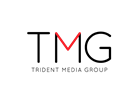More About Lit Agents
Want to learn more about how literary agents work? Check out the links below:
https://www.agentquery.com/writer_la.aspx
http://www.dailywritingtips.com/how-to-find-a-literary-agent/
Feature
Ask the Lit Agent
Trident Media Group Agent Mark Gottlieb Answers Questions Independent Authors & Self-Publishers Have About Working With a Literary Agent
Editors note: Mark Gottlieb, literary agent at Trident Media Group, authored this article exclusively for Independent Publisher. Our thanks to Mark for sharing his knowledge and we look forward to more from him in the future.
 Many authors coming out of the independent publishing space – those who have been published by an independent publisher, those who’ve self-published, or indie authors who’ve worked with a POD service such as Createspace – all have questions about what working with a literary agency could mean for them. Moving into traditional publishing from independent publishing is an entirely new world, so it’s no wonder it can seem daunting. Here I offer up some frequently asked questions I have gotten from both self-publishers and indie authors.
Many authors coming out of the independent publishing space – those who have been published by an independent publisher, those who’ve self-published, or indie authors who’ve worked with a POD service such as Createspace – all have questions about what working with a literary agency could mean for them. Moving into traditional publishing from independent publishing is an entirely new world, so it’s no wonder it can seem daunting. Here I offer up some frequently asked questions I have gotten from both self-publishers and indie authors.Authors Published by Independent Publishers
Can I continue with my independent publisher if I choose to work with a traditional publisher?
In most instances it is okay to continue working with both an independent publisher and a publisher at a major trade house. This will depend on the type of books each publisher is releasing and how those releases are windowed around one another. For instance, an independent publisher might work with one series or particular kind of book, while agencies work with another. Agencies seldom represent short story collections and novellas, unless they come from a major bestselling author. Story collections and novellas are more often handled through independent publishing since they are difficult to place successfully among larger or major trade book publishers due to the small profit margins associated with shorter works. In some rarer instances, collections and novellas have been sold in with full-length novels in multi-book deals.
Will I get the same individual attention afforded to me from indie publishers?
Some authors worry about moving into a bigger publishing setting. They worry that working with a larger independent publisher or a major trade book publisher could feel like being stuck on hold with customer service. The same thing can happen at an indie publisher, though. This experience will largely depend on the individual(s) at any given publishing house that the author is working with. This will also depend on how well an author’s representative can advocate for them in any book publishing setting.
Will the same freedoms from the indie space be afforded to me in traditional?
There is often a lot of collaboration and communication between authors and indie publishers since everyone at the indie publisher is very easily known. Similar to the answer provided above, this depends on a book imprint or team assembled around an author. We can often obtain consultations and approvals over things such as audiobook narrator, cover design, jacket copy, and more. As much as possible, we try to make it such that writers can interface with the correct people within a publishing house, rather than having to field every question through a book editor.
How should my independent books be scheduled alongside traditional publications?
It is worth pointing out that releasing two books within the same month, or even span of a few months, is often unwise as it can lead to the cannibalization of book sales. Readers will not know which choice to make when there are two or more books releases from an author in a short span of time. Instead, two publishers in an author’s life will want to consider windowing book releases around one another. It is far more beneficial to spread out the publications. So for instance, if an author is publishing two books per year, they might consider six-month book releases.
Can I use your services for foreign, audio, film & TV rights on my indie published books?
This is mentioned below in regard to self-published authors. It is possible to be in business with authors who only want their representatives handling subsidiary rights. We can oftentimes perform these deals as a service for a client that will be placing a new title in our hands to put with a book publisher, though. For some, selling audio and foreign rights for authors coming out of the indie space can be a decent profit center, especially when there’s a good volume of business there.
Do I get to have any say in the publishing process in terms of marketing and publicity?
The marketing and publicity portion of the book publishing process is key. We often ask publishers for a production calendar such that authors know when to expect things in the publishing process. Included in that production calendar is a schedule for when the marketing and publicity plans will be available for us to review and comment on. This will also depend on how well an author’s representative can advocate for them, from the deal-making and contract process and through the publishing process itself.
Self-Published Authors or Self-Publishers
Will I be able to continue with my self-publishing career?
Many book publishers have become more understanding of authors that want to be “hybrid” authors by publishing within both the traditional and self-pub space. This is often beneficial to authors that enjoy this type of publishing. Usually we make a provision with book publishers in contracts for authors such that they can continue their self-publishing. Again, windowing releases around one another will be key. Publishers often ask for this in their book publishing contracts in the competitive works clause by asking for some months of exclusivity on either side of their own publication.
How many books do I need to have sold in order to impress a traditional book publisher?
Most publishers will be happy with any book on their own list that sells at least 10,000 copies within the lifetime of the book. Granted, for self-published authors, the threshold is often higher at as much as in the tens of thousands of copies sold due to other factors. eBooks are sold primarily in one format and at a lower price than what publishers sell printed books at. If the eBooks were selling at a higher price point, then the sales threshold to impress a traditional book publisher would be much lower.
Will the same freedoms I have come to enjoy in the self-publishing space be afforded to me?
We are oftentimes able to obtain many of the same freedoms self-publishers are used to seeing in the self-publishing space. With traditional book publishers, we can obtain consultations and approvals over things such as audiobook narrator selection, cover design, cover copy description, and even the book title decision. We try to advocate through as much of the publishing process as possible in order to make for a good, happy and successful book publishing experience for writers.
How should my books be scheduled alongside traditional publications?
As mentioned before, it is important for an author that is used to a self-publishing model to consider windowing theirs releases between the releases from their traditional book publisher. This helps to keep the sales of each book from cannibalizing one another. If fans of a reader see two different releases from an author within a one to three-month window, then they might not know which book release to choose. That is one of the reasons why prolific authors writing multiple books per year will often put at the very least a few months between book releases.
Can I use your services for just foreign, audio, film & TV rights?
As mentioned before, it is possible for agencies to be in business with self-published authors where the agency is only handling foreign, audio, film & TV rights. Sometimes subsidiary rights deals are performed in those areas as a service to the client while the client is working on a manuscript for a new publication for the agency to sell to a publisher. In rare instances, some companies have been able to handle these subsidiary rights deals for clients as smaller profit centers in something of a volume business. Film & TV rights can take some time to place. It is easier to place those rights with a traditional book publishing deal in place.
Do I get to set the price of my traditionally published books?
We are often able to get publishers to be willing to consult with authors over how to best price their book releases. Ultimately the publisher will have to meet certain price margins in order to make good business sense out of the publication. Over time, it is easier to lower the price of books in price promotions in order to be closer to what self-published authors are used to selling their books at.
-----
Hopefully these frequently asked questions and answers from self-pub and indie authors looking to work with an agency prove helpful to anyone curious about the process. Questions one might have about the process should not be a barrier to seeking representation, especially when a representative can help to greatly improve an author’s book publishing career.
* * * * *
 Mark Gottlieb works as a literary agent at Trident Media Group in New York City. In addition to having performed film and TV adaptations of books, he has represented both New York Times bestselling authors and award-winning authors.
Mark Gottlieb works as a literary agent at Trident Media Group in New York City. In addition to having performed film and TV adaptations of books, he has represented both New York Times bestselling authors and award-winning authors.

